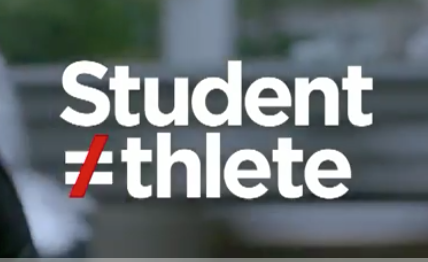I went to a high school with no sports so I was clueless on the absolute grind the life of a student athlete is, even on a high school level. Within weeks of coming here, however, I became aware of exactly how difficult the life of the student athlete can be. Unfortunately student athletes have the reputation of having everything handed to them – they get all this expensive gear for free, get the “easy” classes, and free travel. This documentary really pinpointed how college athletics is a machine, “a farm for the NFL,” leading to me think of my experiences with student athletes the far.
The economic injustices presented in the NCAA was jarring. On CBS, some of them live below the poverty line even though the sport they are playing in makes their college millions of millions of dollars. This is another form of a power system in which, as Bob Orr expressed in the radio show, “you keep the players poor, you keep the players powerless. They can’t have agents, they can’t have representatives, all part of the university and the NCAA having control over the product and making sure the players – the ones making all the money – get as little as possible from it.” Being a college athlete is sought as desirable, the recruiters make you want to go there, be part of this bigger entity. Then you get there, and you are drilled thin. You wake up, lift, go to class, go to practice, homework, sleep repeat. It is a machine in which doesn’t produce people it produces these tired individuals put through the ringer. For what?
The discussion with the NCAA president reminded me of the white savior myth Sonia discussed in her final project. He said “we provide them with remarkable opportunities to get an education at the finest universities on earth… To gain access to the best coaches and the best trainers to develop their skills and abilities. So if they have the potential, that small proportion to go on and play in professional sports, we’re helping them develop this skills and they can go do it.” He acts is if they’re saving them from the poverty that many of them lived in, that the NCAA is singlehandedly making them successful humans. It is never discussed the mental, emotional, and physical tradeoffs had by the student.
This class has pushed to ask so what? And prior to watching this film I have asked that question as it relates to these college athletes. In conversation with a basketball player here, he said “I wanted to take calculus, but they did not let me.” Theres a line between autonomy and power that has been crossed in college athletics. Students’ schedules are catered toward them getting good grades (so they coach gets paid more) and so they can focus on their sport. The film showed that 303 of 91,775 NCAA athletes are drafted. That is .3% of all students put through the machine get a career in which they devoted their whole college years to. They were put through the easier classes to put time into sport but what tare they supposed to do next?
